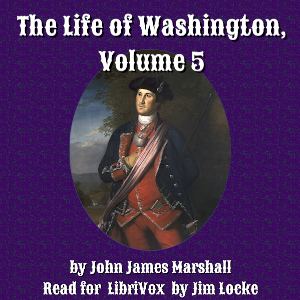This 1898 collection of thirteen previously published articles exhibits the acute perception of one of the most popular writers of the late 19th-early 20th centuries. “These "Tales of the Trail" are based upon actual facts which came under the personal observation of the author… and will form another interesting series of stories of that era of great adventures, when the country west of the Missouri was unknown except to the trappers, hunters, and army officers.” Henry Inman (1837 – 1899) was an American soldier, frontiersman, and author. He served in the military during the Indian campaigns and the American Civil War, having earned distinction for gallantry on the battlefield. He was commissioned lieutenant general during the Indian wars. He settled in Kansas and worked as a journalist and author of short stories and books of the plains and western frontier. - Summary by Wikipedia, Book Preface, David Wales
15 episodes
A brief, personal recounting of the 332nd Infantry in World War I, including training in America, a brief billet in France, activities in Italy, and the return to America. Summary by KevinS
13 episodes
The Wars of the Roses, 1377-1471, were a series of English civil wars fought for the control of the throne of England between two rival cadet branches of the House of Plantagenet, Lancaster and York. The Scottish historian, Robert Balmain Mowat (1883-1941) writes that these wars saw "the death of the old England and the beginning of the new." But they also saw the emergence of great personalities: the noble Richard of York, Warwick the Kingmaker, King Edward IV, indolent and energetic by turns, and his relentless opponent, Margaret of Anjou, a true she-wolf of France. (Summary by Pamela Nagami, M.D.)
33 episodes
Robert James Manion (1881-1943) was a Canadian doctor who volunteered in the Canadian medical corps during World War I. This book is his memoir of the war. After the war he entered politics and served in several Canadian governments. The listener may note a lack of mention of the United States soldier; this is because the memoir was written before the entry of that country into the war. - Summary by David Wales
13 episodes
Louise Creighton (1850-1936) was a British author and women's rights activist. The wife of the Anglican bishop of London, she was the mother of seven children. In this short book, Creighton gives us chapters on such well-known women as Joan of Arc, Florence Nightingale, and Queen Victoria. But we also learn about St. Hilda, the 7th century royal princess who became an influential abbess, the prison reformer, Elizabeth Fry, and Isabella Bird, who thrilled Victorian readers with accounts of her lone travels on horseback to remote and perilous places. - Summary by Pamela Nagami, M.D.
17 episodes
Frontinus' Stratagems is a collection of examples of military stratagems from Greek and Roman history, which the author comments based on his own experience as a general in Germania. Many of the stories he tells can also be found in other Roman authors like Valerius Maximus and Livy. His most famous work however is De aquaeductu, The Aqueducts of Rome, an official report to the emperor on the state of the aqueducts of Rome, in two books. It presents a history and description of all the nine aqueducts that provided the water-supply of Rome in the first century, as well as information about the laws relating to its use and maintenance, and the quality of water delivered by each. (Summary by Leni)
22 episodes
Kipling's brief assessment of the British New Army being assembled to fight in the Great War. Concerns itself with training and logistics but more importantly with the human side of the vast collection of new battalions. These come from throughout the Empire, including Canada, India, and other territories. - Summary by KevinS
6 episodes
A companion volume to his previous "lightning biography" of Napoleon, this book is an outline of the overall shape and impact of the French Revolution, with references given for deeper study. It is a deliberately short and approachable work, suitable for those reading about the French Revolution for the first time, or looking for an overview of the main events and significance of this great historical cataclysm. - Summary by Beth Thomas and the Introduction
18 episodes
This volume does not pretend to be a history of Artic exploration. My aim has been to narrate some of the most thrilling incidents of Polar adventure in such a manner that the reader may feel something of the fascination which induces explorers, in spite of reverses and disasters, to attempt again and again to penetrate the vast region of snow and silence and solitude around the North Pole. Great care has been taken to ensure accuracy; and, wherever possible, the actual journals of the various expeditions have been consulted, besides a host of minor publications. (Preface by Frank Mundell).
* * *
Stories of North Pole Adventure, was one in a series of inspirational texts and ‘heroic writings’ by the Victorian author Frank Mundell and published by The Sunday School Union. Frank Mundell wrote a significant number of books for children (both boys and girls) and many of these were distributed and presented to them through their Sunday schools. - Summary by Steve C
16 episodes
John Churchill, 1st Duke of Marlborough (1650-1722), was the oldest surviving son of Sir Winston Churchill, an impoverished country gentleman. After the restoration of Charles II, John's sister, Arabella, became the mistress of the King's brother, James, Duke of York. The family fortunes were made and Churchill's military career launched. In the winter of 1677-78, Churchill married Sarah Jennings, the intimate friend of the future Queen Anne. Ruthlessly changing sides during the Glorious Revolution, he deserted his patron James and joined the army of William of Orange. Marlborough's brilliant generalship in the War of the Spanish Succession destroyed the myth of French military invincibility and won him the adoration of the British people. But Marlborough fell from power when his wife's relationship with Queen Anne ended rancorously and when the peace-loving Tories ousted his wartime supporters, the Whigs. - Summary by Pamela Nagami, M.D.
39 episodes

This is the ninth volume of the 15-volume series of The World’s Story: a history of the World in story, song and art, edited by Eva March Tappan. Each book is a compilation of selections from prose literature, poetry and pictures and offers a comprehensive presentation of the world's history, art and culture, from the early times till the beginning of the 20th century. Part IX deals with the first part of the history of England, from the early times till the reign of the Tudor kings and queens. Chapters include stories about King Arthur, William the Conqueror, Robin Hood, Queen Elizabeth and many others. - Summary by Sonia
Cast list for A messenger from Rome:
Cymbeline: alanmapstone / Lucius: Jim Locke / Queen: Devorah Allen / Cloten: Tomas Peter / Narrator: Sonia
Cast list for Prince Arthur and the keeper Hubert:
Hubert: Jim Locke / First Executioner: Devorah Allen / Arthur: Tomas Peter / Narrator: Sonia
Cast list for Two scenes in the life of Henry V:
Falstaff: alanmapstone / Prince Hal/King Henry V: Tomas Peter / Host: Monika M.C.r / Warwick: Jim Locke / Chief Justice: Adrian Stephens / Lancaster: Todd HW / Gloucester: SaraHale / Clarence: Sandra Schmit / Narrator: Sonia
Cast list for The fall of Cardinal Wolsey:
Wolsey: Jim Locke / Cromwell: alanmapstone / Narrator: Sonia
81 episodes
A very brief introduction to postal stamps used and issued during times of war. The principal focus might be said to be placed upon the Great War which just erupted in Europe and across much of the globe. - Summary by KevinS
3 episodes
This Part 2 of "The Afghan Wars 1839-42 and 1878-80" discusses the 1878-80 war, which was one of the major conflicts during the Great Game, the 19th century competition for power and influence in Central Asia between the United Kingdom and Russia, and also marked one of the worst setbacks inflicted on British power in the region after the consolidation of British Raj by the East India Company. - Summary by Lynette Caulkins and Phil Griffith
10 episodes
Personal accounts and recollections of soldiers coping with body lice, poisonous gas, rats, and death in the trenches during WWI. - Summary by Jeffery Smith
26 episodes
Richmond, Virginia, was the capital of The Confederacy during the American Civil War, 1861-1865. It was the focus of two military campaigns by Northern armies, one in the summer of 1862 (the Peninsula Campaign) and the second in 1864-1865. When the city was conquered and destroyed in early April, 1865, , it was only a few days later that General Lee surrendered to General Grant and the Civil War was over. Published in 1961, this is National Park Service Historical Handbook 33. The text contains many informative maps and interesting photographs. - Summary by david wales
6 episodes
Volume 2 of The Life begins with some early biography, but moves quickly to Washington's military career as a colonel in the battles against the French in Canada until the cessation of his tenure, after which he marries and appears to settle down. But, of course he is called to lead the troops fighting in the revolution against England about which leadership the remaining of Volume 2 is dedicated to the point of the American rejection of England's Plan for Reconciliation.
12 episodes

In this short book Edward Ellis Morris writes a vivid account of the reigns of the first two Georges. Scarcely had the fifty-four-year-old king assumed the throne when James Stuart roused the Highlanders in the "Fifteen." Five years later the collapse of the South Sea Company convulsed Britain and her first prime minister, Robert Walpole, emerged to stabilize the country's finances. George II succeeded his father in 1727 and Morris writes that "the new King was in person short, and like many short men, proud and touchy." Fortunately, he was guided by the wise Queen Caroline. On the Continent, the Turks besieged Vienna, Britain got embroiled first in the War of Jenkins' Ear and then in the War of the Austrian Succession, while Bonnie Prince Charlie took advantage of these distractions to mount the nearly successful Jacobite invasion of the "Forty-five." Meanwhile, John Wesley's Methodism revived religious enthusiasm, Boswell immortalized Samuel Johnson and his friends, and Tom Jones embarked on an epic road trip in which Henry Fielding brought English society to life, warts and all. - Summary by Pamela Nagami, M.D.
34 episodes
Guy Thornton recounts his experiences serving as a military chaplain with the Australian and New Zealand Army Corps (ANZAC) while stationed in Egypt during World War I. His writing is opinionated, emotionally vulnerable, and written in very colorful, vivid prose. He recounts both his successes and failures as a pastor. Of particular concern to Thornton, are his soldiers’ interactions with the Wasa'a- the red-light district of Cairo which was popular with the soldiers who often patronized prostitutes. Thornton also expresses his experiences exploring Cairo, his work as a chaplain, and the various social services catering to soldiers.
- Summary by Adam Bielka
12 episodes
While most associate the "Great War" with trenches, barbed wire, machine guns, and poison gas, ships played roles in the military at the beginning of the 20th century. Stories of the Ships is a 1919 collection of accounts described in the first person by those who fought battles on the sea during World War I. It gives the listener a more complete account of the conflicts that defined the most costly war in history. Lewis Ransome Freeman (1878 – 1960) was an American explorer, journalist and war correspondent who wrote over twenty books chronicling his many travels, as well as numerous articles. He became a lieutenant in the Royal Naval Volunteer Reserve in 1917-18. He was a correspondent attached to the Grand Fleet late in the war, and was a staff member for the Inter-Allied Naval Armistice Commission which traveled to Germany in 1918. (Summary by Jeffery Smith and David Wales)
17 episodes
Published in 1917, this "little volume of 'Theta’s' letters to his home people" was assembled to provide useful information for young men who might like to become pilots for the Royal Flying Corps. A mixture of conversational letters, poems, and descriptions of flying, the book proves entertaining, even today, despite having been written in training and in active duty during World War I. - Summary by Lynette Caulkins
21 episodes
Volume 3 of The Life continues the Revolutionary War from the incursion into Jersey in 1778 to its conclusion with the surrender of Lord Cornwallis in 1781 at Yorktown, with emphasis on the role of George Washington, Commander-in-Chief of the United States forces.
16 episodes
This short history by the eminent British historian, Mandell Creighton, places Elizabeth and her reign within the context of 16th century European political, religious, and military events. Elizabeth overcomes her two great rivals, King Philip of Spain and Mary, Queen of Scots. England gradually unites behind her Queen, who survives multiple assassination plots. After the defeat of the Spanish Armada, the English, lightly taxed by their frugal sovereign, launch flourishing commerce enterprises. The author writes of the Protestant Reformation that "a change of belief meant a revolt from authority." In this age of individualism, personal daring, and a consciousness of national greatness, the golden age of Elizabethan literature breaks new ground in historiography, literary theory, poetry, and above all, drama. (Pamela Nagami, M.D.)
25 episodes
Holland 's provides us with an engaging history of the Unification ("Risorgimento") of Italy by exploring the lives of some of its most important figures: Alfieri, Manzoni, Gioberti, Manin, Mazzini, Cavour, Garibaldi, and Victor Emmanuel. - Summary by Ciufi Galeazzi
17 episodes
This fourth volume covers the final battles and the peace conditions of the war, Washington at home, Washington as first President, and the internal battles to hammer out a new and heretofore unseen government.
21 episodes
A collection of letters written by Stuart Walcott while training to be an aviator in France to prepare for combat. Walcott died in his first aerial combat after first downing a German bi-plane. - Summary by KevinS
6 episodes
In publishing this book I have no intention whatsoever to offer a work of great literary value. As such it would undoubtedly be a failure, because, being of a non-English-speaking race, and only having been in this country a comparatively short time before going over to France, I cannot claim a mastery of the English language. It has merely been my intention to express the spirit which led me to America and thence with Pershing's Expeditionary Forces to France. (From Introductory)
11 episodes
Volume five of John Marshall's biography follows Washington through his second term ending in the election of John Adams and Washington's retirement to Mount Vernon. This narrative continues the careful and intriguing analysis of the subjects of the previous volume as America navagtes with Washington's wise captaincy the complicated and sometimes violent foreign and domestic conflicts of the young, developing nation.
15 episodes
Bennett's served in many capacities in the WWI war effort. After a visit to the Western Front he wrote this 1915 collection of essays about his impressions. He declined being awarded an OBE (Order of the British Empire) at the end of the war. - Summary by David Wales
6 episodes



























